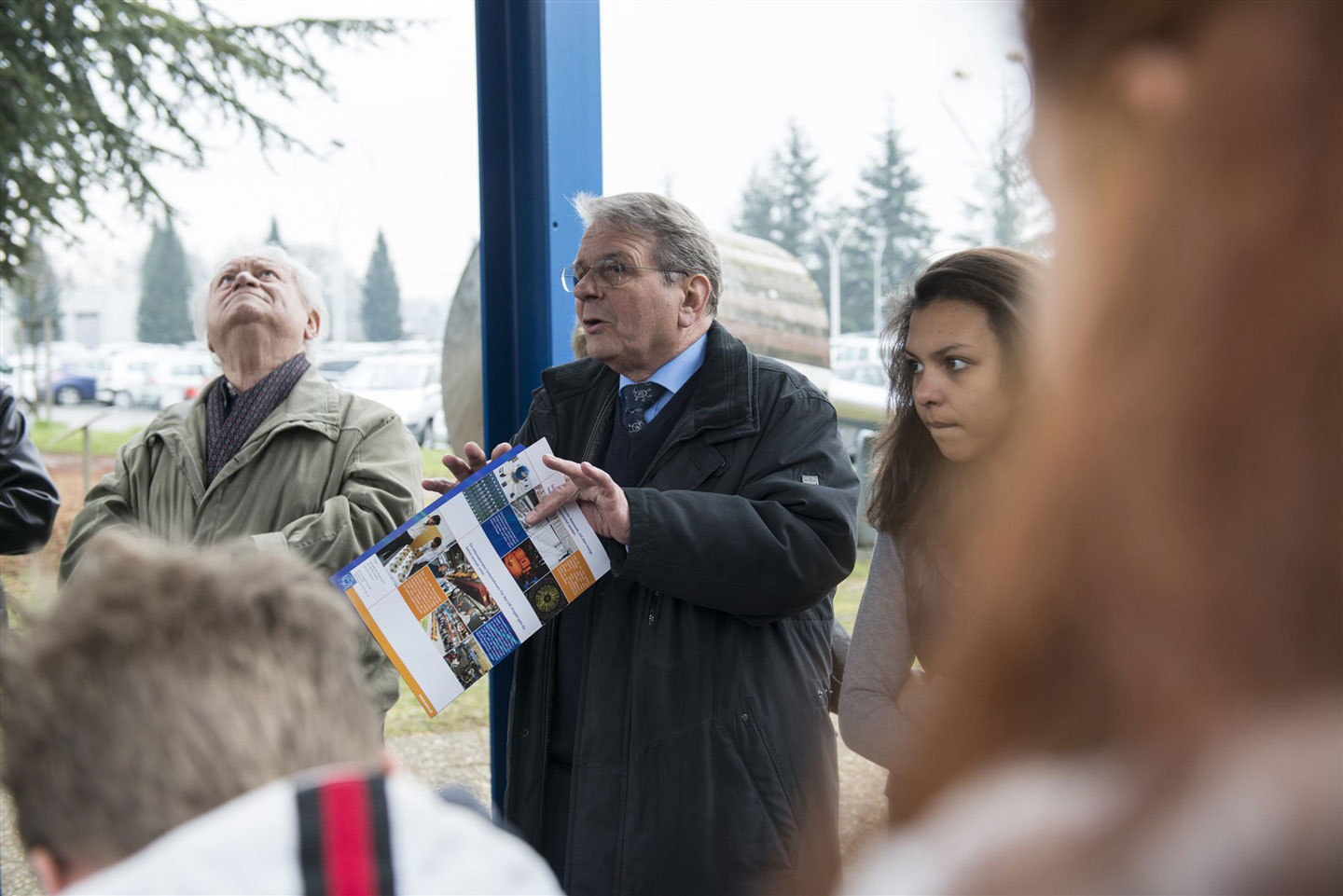Around 60 secondary school students from France and Germany visited CERN on Monday, 25 March to find out more about the Franco-German relationship. Pupils from the secondary school in Péron, a village near to CERN, and their exchange partners from Marktoberdorf, a town in Bavaria, were researching Franco-German cooperation to mark the 50th anniversary of the Elysée Treaty. This treaty of friendship cemented the partnership between France and Germany, two countries which had torn each other apart over the course of several wars. Many cooperation projects arose from the treaty, in particular collaborations in the fields of education and science, with the aim of getting young people to work together and thereby set the seal on a lasting peace.
CERN, founded ten years before the treaty was signed, had already led the way in terms of scientific dialogue between European nations. The pupils came to CERN to find out more about this by interviewing French and German researchers who are continuing this partnership in the 21st century. Horst Wenninger, a former CERN director who was one of those responsible for the Big European Bubble Chamber (BEBC) – a tripartite collaboration between Germany, France and CERN – explained the history of this dialogue to the pupils.
As Wenninger explains: “Just after the Second World War, CERN was the first project in which Germans were able to work again with other European nations. This was ten years before the Franco-German treaty. Cooperation between nations was simpler in science than in other fields.” Pupils also had discussions with pairings of French and German researchers who today work together on the LHC experiments.
“By coming to CERN, I wanted to show my pupils and their exchange partners their nations’ shared history since the Second World War," says Laurent Marc, teacher of German at the Péron secondary school. “They have been able to supplement their understanding of the history of this cooperation through hearing about the personal experiences of the physicists they met." “It is important to remember and pass on what we have achieved over the past 50 years so that we don’t run the risk of destroying it," says Wenninger.

